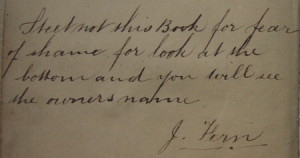Take inspiration from a handed-down item
Heirlooms provide us with a tangible link to our ancestors. They are objects that our relatives acquired, treasured, bequeathed. Very often they have little intrinsic worth, yet they’re packed with value to the family historian.
Edmund de Waal, in his riveting family history, The Hare with Amber Eyes uses an inherited collection of 264 netsuke – delicately-carved wood and ivory Japanese belt fastenings – as the thread for his storytelling. “I pick one up and turn it round in my fingers, weigh it in the palm of my hand… There is a slight split, an almost imperceptible fault line on the cicada. Who dropped it? When and where?”
Penelope Lively follows a similar vein in her memoir ‘Ammonites and Leaping Fish’: “My house has… the accretions of a lifetime. Not many of them are valuable; some of them are eloquent. People’s possessions speak of them: they are resonant and betraying and reflective.” So, your heirlooms hold stories, just waiting to be released.
Take a look at these brief stories inspired by heirlooms:
Now try this: Whether you have a wedding ring, tea service, or a well-thumbed book, heirlooms can make an intriguing theme for a family story. Study the object’s texture and workmanship. When and where was it made? In what circumstances did your ancestor acquire it? What did it mean to them? Write a brief piece – say 200 words – that creates a picture of how your ancestor related to the heirloom.

2 replies on “Write: Heirloom”
[…] life. For example, you might write a brief ‘glimpse’ based about a family photo or an heirloom. Keep it short and sweet, aim for about 200 words. Then you might have a go at writing a slightly […]
[…] Write: Heirloom […]